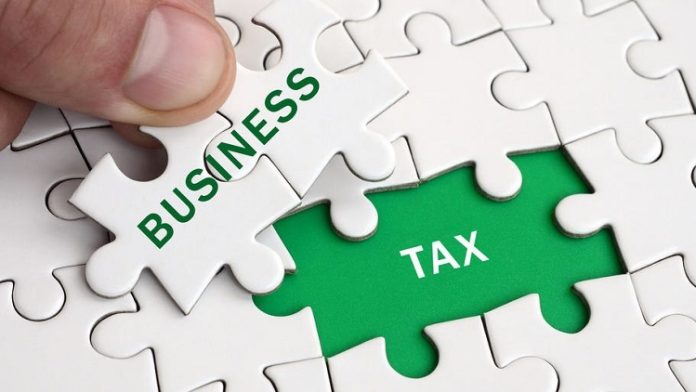Owning a small business means more than just providing products and services: it also involves managing finances. And one important part of that is taxes. As a small business owner, you need to know how to save on taxes so you can keep your profits in the black.
You need to remember that your primary objective as a small business owner is to save on taxes as much as possible. This will help you grow your business and increase its profitability.
But what can you do to save on your small business taxes? Read on to discover some of the ways small businesses can save on taxes:
Contribute to a Retirement Account
Contributing money to a retirement plan can not only help you save for your future, but it can also reduce the amount of taxes you owe. Contributing to an IRA (Individual Retirement Account) or 401(k) plan allows you to put pre-tax dollars into these accounts, reducing your tax bill in the process.
The more you invest in your retirement accounts, the less taxes you’ll pay. Plus, many employers offer a matching contribution that can help boost your retirement savings.
Contributions are often tax-deductible and may also qualify for additional deductions, such as the Saver’s Credit, which helps low-income taxpayers to save more for retirement.
Pay for Health Insurance
The truth is that buying health insurance can be quite costly, especially for small businesses. Fortunately, most small business owners can take advantage of tax credits to offset the cost and reduce their overall tax liability.
Small businesses with fewer than 25 full-time employees may be eligible for the Small Business Health Care Tax Credit, which can provide up to 50% off their healthcare premiums. To qualify, employers must pay at least half of their employees’ premiums and meet certain requirements.
The tax credit also extends to self-employed individuals who are looking to purchase health insurance.
Take Home Office Deductions
If you use a portion of your home for business purposes, you may qualify to deduct the expenses associated with that space from your taxes. This includes things like rent or mortgage payments, utilities, repairs, maintenance, and office supplies.
To qualify, you need to use the space exclusively for business purposes, and it must be the principal place of business. Additionally, your home office must be regularly used to conduct administrative or management activities related to your business.
When claiming this deduction on your taxes, make sure to document all expenses associated with the home office. That way, you can maximize your deduction and reduce your overall tax liability.
Hire a Family Member
One of the best ways for small businesses to reduce their tax liability is to hire a family member. If you have an immediate family member who can help with your business, it’s worth considering hiring them as an employee or independent contractor.
Hiring a family member can provide numerous benefits, including deductions for payroll taxes, Social Security and Medicare, health insurance premiums, and workers’ compensation.
Also read: Mortgage Calculator with Taxes, Insurance, PMI & HOA
It can also help reduce the income taxes you owe, saving you a lot of money in the long run.
Take Advantage of Tax Credits
Tax credits are a great way to save money on taxes. Certain tax credits can be claimed by small businesses, such as the Small Business Health Care Tax Credit for employers who provide health care coverage for their employees or the Renewable Energy Investment Tax Credit for businesses that invest in renewable energy sources.
There are also other tax credits available, such as the Work Opportunity Tax Credit (WOTC) for employers who hire certain types of workers, or the Research and Development Tax Credit, which rewards businesses for investing in research and development activities.
Taking advantage of these tax credits can help to reduce the amount of taxes you owe, and if you’re eligible, you could save thousands of dollars each year.
Buy Equipment and Vehicles for Depreciation Deductions
Did you know that your small business can take a tax write-off on purchases of business machinery, equipment, and vehicles?
Under the Internal Revenue Service’s rules, businesses can write off the cost of these purchases over time. This is called depreciation, and it can be a great way to reduce your taxes.
When claiming depreciation deductions, you must keep track of all business assets and their costs, including when they were purchased.
The bonus depreciation is an extra deduction that was made available to small businesses in 2018 and is still available through the end of 2023. This allows businesses to write off up to 100% of their purchase price of qualifying assets in the year they were acquired.
Taking advantage of depreciation deductions can reduce your overall tax liability and free up cash flow for other investments or expenses.
Look for Other Areas to Cut Costs
Although saving on taxes is an important way to boost your business’s profitability, it’s also important to look for other areas in which you can save money.
For example, many small businesses overlook the potential to cut costs for employee benefits, marketing, advertising, or office supplies.
By taking a closer look at how much you’re spending in these areas, you may find ways to reduce expenses and increase profitability.
Claim Business Expenses
When it comes to taxes, one of the most important things small business owners need to remember is that expenses related to running your business are usually tax-deductible.
It means you can reduce your taxable income by claiming any eligible expenses, such as office supplies, travel expenses, and equipment.
Also read:
Keeping track of your business expenses throughout the year will play a critical role in ensuring that you’re claiming all deductions available to you. This is another great way to reduce your tax liability and increase your profitability.
Maximize Charitable Contributions
Making charitable contributions is another great way for small businesses to reduce their tax liabilities. When you make donations to 501(c)(3) organizations, you can take a tax deduction for the amount of the donation.
In addition to reducing your overall tax burden, charitable giving is an excellent way to demonstrate that your business cares about its community and makes a positive impact on those around you.
Conclusion
Taxes are a fact of life, but that doesn’t mean you have to pay more than necessary. By taking advantage of deductions and credits available to small businesses, you can reduce your tax liability and potentially save thousands of dollars each year. Be sure to consult a qualified tax professional so that you can properly take advantage of all available tax benefits.







